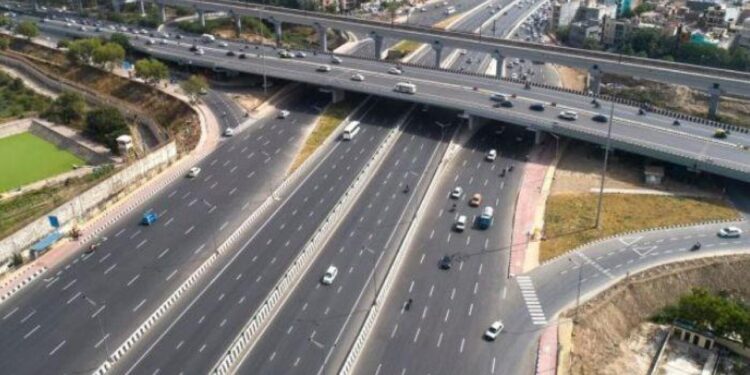The African Development Bank (AfDB) has confirmed its intention to invest $15 billion in the much-anticipated Lagos-Abidjan Highway Corridor, an infrastructure initiative set to significantly enhance regional trade and mobility across five West African nations.
This announcement was made during the formal opening ceremony of the 2025 Annual Meetings of the African Development Bank Group, taking place in Abidjan.
In his keynote address, Dr Akinwumi A. Adesina, President of the AfDB, underscored the strategic importance of the corridor and its potential to reshape the economic landscape of West Africa.
As he nears the end of his presidency, Dr Adesina expressed his gratitude: “As I conclude my two five-year terms, I am proud of the legacy we have established for my successor, the Bank, and for Africa.” He highlighted the Bank’s accomplishments, including its support for the Noor Ouarzazate solar complex in Morocco, which was the largest concentrated solar power facility globally at its completion.
Dr Adesina remarked, “We have launched the Lagos to Abidjan highway corridor, for which the African Development Bank is supporting feasibility studies, and we have mobilised $15 billion in investment interest.”
In Nigeria, he elaborated on the development of special agro-industrial processing zones across eight states and the Federal Capital Territory (FCT), with a total of $2.9 billion mobilised to establish these zones in an additional 28 states.
He added, “We have supported countries facing sanctions to clear their debt arrears to the Bank, including Somalia and Sudan.”
Reflecting on his decade of leadership, Dr Adesina noted that the AfDB would have provided a total of $102 billion in assistance to Africa, accounting for 46% of all the Bank’s financing since its inception in 1964.
The African Development Bank has financed over $55 billion in infrastructure projects, including roads, railways, airports, seaports, digital communications, health, water, and sanitation.
The Lagos-Abidjan Highway Corridor will stretch approximately 1,028 kilometres, traversing Nigeria, Benin, Togo, Ghana, and Côte d’Ivoire, connecting key urban and economic centres along the West African coastline. Upon completion, the highway is expected to stimulate trade throughout the ECOWAS region, reduce travel times, lower logistics costs, and enhance regional integration in line with the goals of the African Continental Free Trade Area (AfCFTA).
Dr Adesina’s announcement coincided with his reflections on a decade of leadership at the AfDB, during which the Bank provided $102 billion in support to African nations, representing nearly half of the institution’s total financing since its establishment in 1964.
He stated, “We have accelerated regional integration through substantial investments in infrastructure to support the African Continental Free Trade Area,” highlighting the Bank’s contributions to railways, roads, ports, and energy systems across the continent.
Some of the key transport corridors supported by the AfDB include the Addis Ababa–Nairobi–Mombasa corridor, which has shortened travel time from three days to one, and Tanzania’s $3.2 billion standard gauge railway project.
Dr Adesina pointed to the tangible improvements in the lives of over 565 million Africans due to the Bank’s interventions in energy access, health, sanitation, ICT, food security, and infrastructure, with the AfDB’s infrastructure investments alone totalling over $55 billion in the last ten years.
In Côte d’Ivoire, the host of the 2025 Annual Meetings, the Bank’s financial support has increased by 500% over the past decade, facilitating flagship projects such as the Henri Konan Bédié Bridge and the iconic 4th Bridge in Abidjan.
Dr Adesina also recognised the strong backing from African leaders, including Nigerian President Bola Tinubu and Vice President Kashim Shettima, for approving the $500 million replenishment of the Nigeria Trust Fund for an additional 15 years.
As his presidency draws to a close, Dr Adesina reaffirmed his commitment to the continent: “I am extremely proud of the work we have accomplished and the remarkable impact the Bank has had on the daily lives of millions of Africans. I will continue to serve Africa today and into the future by God’s grace.”
Moreover, the African Development Bank launched a $750 million hybrid capital offering on the global capital market in 2024, making it the first multilateral financial institution to do so and creating a new asset class for investors worldwide.
He further commented, “The African Development Bank, in collaboration with the Inter-American Development Bank, has established a framework to allow the re-channeling of the IMF Special Drawing Rights (SDRs) to multilateral development banks, which we can leverage by four to eight times to provide much-needed concessional financing at scale.”
“As my mandate as President comes to an end, I am incredibly proud of our achievements and the significant impact the Bank has had on the daily lives of millions of Africans. This has been a collaborative effort of which we can all take great pride.”











